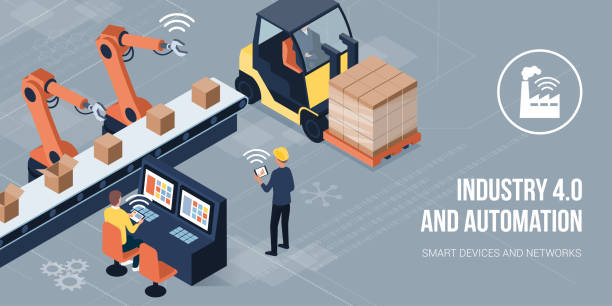The ability to think beyond sets of machines and move towards a true ‘systems thinking’ is essential
The need for a transformation in India’s manufacturing sector has never been stronger than today. With the goods and services tax law passed and a new phase of demand emerging across India, efficient and highly productive manufacturing enterprises will fuel the demand that a surging economy can be expected to generate. Transformation of manufacturing industry mindsets and capabilities to create factories of the future will ensure that India is able to meet its aspiration of manufacturing becoming at least a quarter of future gross domestic product (GDP) and building high-quality jobs of the future as Indian firms mount an assault on global market share.
The opportunity for Industry 4.0 is emerging not just because of emerging robust demand but also due to the rapid sweep of digital technologies, customer and supply-side analytics and new tools like augmented reality, robotics, 3D printing and Internet of Things (IoT) that are enabling seamless vertical connectivity through the customer and order fulfilment processes of manufacturing enterprises and horizontal integration of value chain partners across the industry in which each firm operates. A study on the importance of 4.0 for BRICS nations by Ficci and Roland Berger has thrown light on the fact that more than 220 million people are employed in manufacturing in the BRICs countries, which is more than the entire population of the world’s fifth-largest nation, Brazil. The surge in robotics, artificial intelligence and other automation technologies could result in the movement of jobs back to the developed world and the elimination of lowly skilled jobs in emerging economies, which is yet another imperative for reskilling of the large workforce in India and other BRICS countries.
In India, the impact of Industry 4.0 on the small and medium-size enterprises sector, which drives more than 38 per cent of GDP and provides employment to 110 million people, is another dimension to be considered and any large-scale reskilling agenda needs to be as relevant for the small factories as it is for large industrial enterprises. And with small and medium companies increasingly serving as integral parts of the global supply chains of some of the country’s and the world’s leading manufacturing conglomerates, no manufacturing firm can be left behind in the country’s march towards Industry 4.0.
As a detailed study by PwC points out, products, systems and services will be increasingly redesigned and customized to fit customer needs and firms will become participants in large industrial platforms. As with all paradigm shifts, first movers will tend to corner large parts of the new opportunity share and with millennial customers beginning to dominate the demand conversations in many industries, every process and every person engaged in the entire manufacturing demand and supply chain will have to be totally customer-driven for the firm to succeed and stay relevant in the digital era.
Companies such as Siemens and GE are already putting up platforms to offer comprehensive digital offerings, with cloud-based systems for connecting machines and IoT sensors and devices and partnering and co-creating ideas with customers, collecting and analyzing data at every touch point in the value chain and re-engineering operations and logistics processes to serve stated and latent customer needs better. The emerging industrial digital ecosystems will call for new mindsets, new capabilities and new skills across the board.
What are the families of skills that engineers of tomorrow will have to be armed with and manufacturing practitioners reskilled in to face the challenges of the future? The first and foremost is the ability to think beyond sets of machines or even blocks of data and move towards true “systems thinking” for customer product journeys and customer-led value chains. The California Manufacturing Technology Consulting group defines a term called Smart Manufacturing as the unity of data, technology, environment perspectives and economic growth focus and people leading manufacturing enterprises will have to understand the nuances of making this happen in real time.
Digital will be the cutting edge for all factories of the future and from a deep understanding of digital platforms that a customer can participate in or employees use for continuous learning, comfort with using such platforms enabled by artificial intelligence and machine learning will be essential for every manager and engineer in the organization. New digital production line skills will be needed in operations planning and control, production and maintenance processes, materials planning and warehousing, with the use of 3D printing and robotics coexisting with manual operators. Virtual reality will enable higher productivity in tasks like picking parts in a warehouse and augmented reality will make the training of shop floor engineers and fault diagnostics much simpler.
Even at the workman level, capabilities to deal with extensive automation and work with robotic processes, automated manufacturing execution systems and self-healing machinery will be skills that become essential. Learning and development focus in busy factories will have to move from traditional TPM, 5S and Six Sigma to embrace newer and newer digital capabilities that will emerge every month, calling for quick assimilation and integration.
Manufacturing enterprises of the future will also have to deal with large data volumes to analyze, with sensor-generated IoT data from the shop floor coexisting with information churned out by ERP systems. It’s an exciting time for the factory of the future and the focus on skills needs to be paramount so that no individual is left behind and Indian firms are able to seize the opportunity and take the lead.
Photo credits : iStock.
